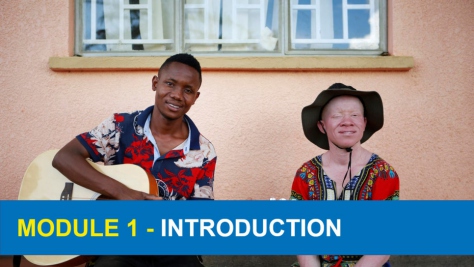Return of 2,400 Somali refugees leads to closing of third camp in Ethiopia
The voluntary return of more than 2,400 Somali refugees last week brings to more than 50,000 the number of voluntary repatriations last year and leads to the closing of a third refugee camp in Ethiopia.

ADDIS ABABA, Ethiopia, Jan. 2 (UNHCR) - The repatriation of thousands of Somali refugees from Ethiopia has continued at a steady pace, reflecting a more stable situation in parts of the east African country and leading to the closing of three of eight refugee camps.
Two convoys last week repatriated 2,412 people from Ethiopia's Daror camp to north-west Somalia, bringing the total number of refugees who returned home in 2001 to 50,216. The latest returnees received a nine-month food ration, plastic sheeting and blankets to help them restart their lives.
The Daror complex, which includes health clinics, schools, water systems and generators, and which once hosted 50,000 refugees, will be handed over by UNHCR to the local community.
Earlier last year, Teferiber and Dawarnaji camps were also closed.
Another estimated 67,000 Somalis who fled following the outbreak of widespread civil war a decade ago remain in five other camps in Ethiopia. More than half are expected to return home by June, but some 30,000 others from southern Somalia cannot be repatriated because the security situation in that part of the country remains unstable.
Related news and stories
Thousands of newly arrived Somali refugees in Ethiopia relocated to new settlement
Samira's Story
Drought brings life-threatening food shortages for refugees in Ethiopia
100,000 new Somali refugees arrive in Ethiopia in the past month, UN and partners are calling for urgent funding
UNHCR teams and partners rush assistance to some 100,000 newly arrived Somali refugees in hard-to-reach area of Ethiopia
As the Horn of Africa drought enters a sixth failed rainy season, UNHCR calls for urgent assistance
-

ES/2022/01 UNHCR Asylum Capacity Development Evaluation
1 Jun 2022 This document summarises the findings, conclusions and recommendations of the Independent Evaluation of UNHCR's Support for Strengthening National Asylum Systems. The overall purpose of the evaluation is to review how UNHCR has fulfilled its objective to support and strengthen the capacity of national asylum systems in the period 2015–2020 and thereby improve the quality of protection for persons of concern and the sustainability of the systems that support this. Attachments: Executive Summary, Evaluation Brief, Management Response and Annexes (.zip) -

Video Module 1
31 May 2022 -

Course evaluation
31 May 2022 -

Handout 1 - Video Transcript: Safak Pavey
31 May 2022 The handout contains the transcript of the video statement by Safak Pavey, former UNHCR colleague and member of the CRPD committee, on the importance of working with persons with disabilities in forced displacement. -

Saving Maternal and Newborn Lives in Refugee Situations - Evaluation Summary
31 May 2022 UNHCR implemented a three-year project (supported by the Bill and Melinda Gates Foundation) to reduce neonatal and maternal mortality and morbidity among refugees in Cameroon, Chad and Niger. The project targeted 772,000 refugees and focused on low-cost, high-impact interventions. This document provides a summary of the end of project evaluation. -

UNHCR Facilitators Guide - Working with Persons with Disabilities in Forced Displacement
31 May 2022 This Facilitator's Guide on Strengthening Protection of Persons with Disabilities in Forced Displacement supports UNHCR colleagues, partners and others in the field level to recognize protection concerns faced by persons with disabilities and identify different strategies to mitigate risks and promote the inclusion of persons with disabilities in UNHCR programming. -

Handout 0 - Organizing accessible workshops
31 May 2022 The document provides colleagues and partners with practical tips on organizing accessible and meaningful workshops and training for and with persons with disabilities. -

Handout 2 - Models of disability
31 May 2022 The handout for Module 2 Activity 2 of the Disability Inclusion Facilitator's Guide includes the definitions of the four models of disability: charity model, medical model, social model, and rights-based model. -

Handout 3 - Profile cards
31 May 2022 The Handout contains the individual profile cards to be used during Activity 1 of Module 3 of the Disability Inclusion Facilitator's Guide. Each profile card contains the information of a person of concern with disabilities.
